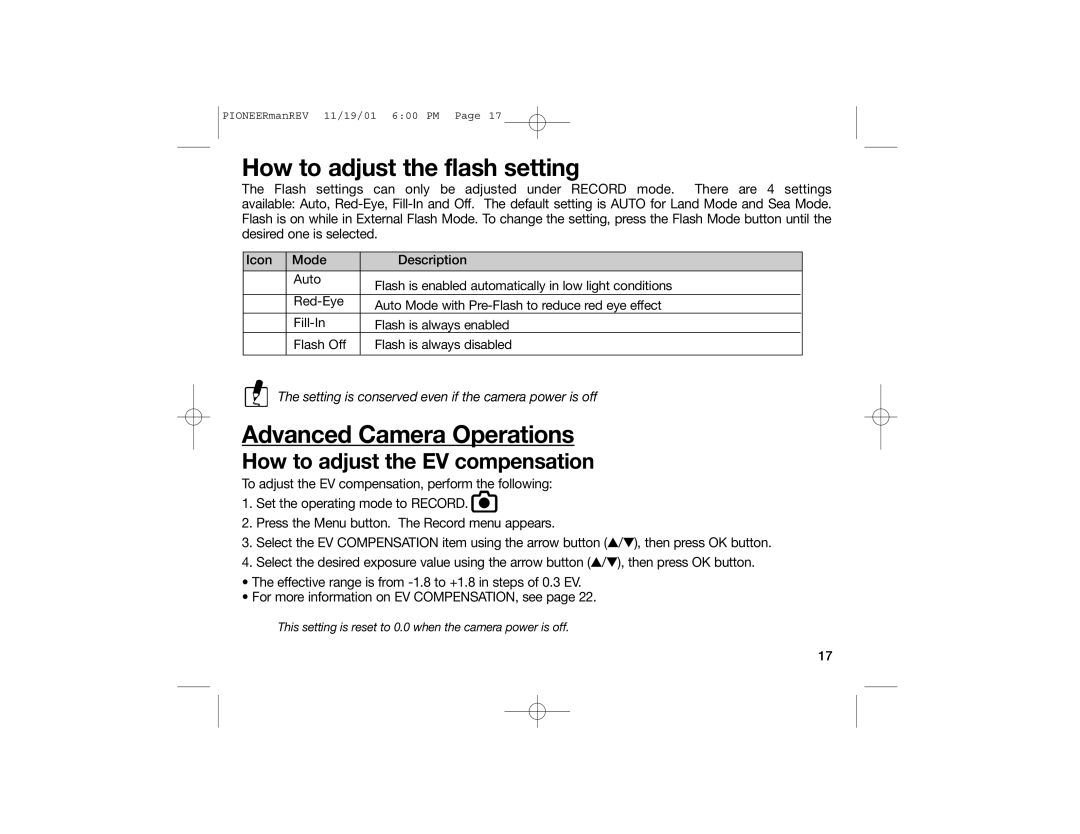DC100, DC200 specifications
The Sealife DC200 and DC100 are popular compact digital cameras designed specifically for underwater photography enthusiasts. These cameras are built to endure the aquatic environment while delivering excellent image quality, making them ideal for divers, snorkelers, and marine explorers.The Sealife DC200 is a robust camera engineered to provide high-resolution images with its 12-megapixel sensor, enabling users to capture stunning underwater scenes with clarity and vibrancy. It also boasts a wide-angle lens with a built-in macro feature, making it versatile for both close-up shots of marine life and expansive shots of underwater landscapes.
One of the standout features of the DC200 is its user-friendly interface, which is designed to be easily navigated even while wearing diving gloves. The camera has customizable quick-access buttons that allow users to adjust settings efficiently without fumbling through complex menus. Additionally, the DC200 is equipped with a 2.7-inch LCD screen that is anti-reflective, ensuring visibility even in bright underwater conditions.
The Sealife DC100, while slightly more compact, does not compromise on quality. Featuring 10-megapixel resolution, it captures excellent images, and its lightweight design makes it convenient for travel. The DC100's built-in flash helps illuminate subjects in murky water, improving visibility and color accuracy. It also supports video recording up to 720p, allowing photographers to document their underwater adventures in motion.
Both the DC200 and DC100 are engineered to be waterproof down to impressive depths, ensuring durability during extended underwater excursions. They feature a shock-resistant housing, safeguarding the camera from accidental drops and bumps on land, as well.
Moreover, these cameras are equipped with advanced technologies such as an optical image stabilization system, which helps to minimize blurring in images caused by hand movements. The cameras also offer various shooting modes, including underwater, macro, and land modes, enabling users to adapt to different photographic conditions seamlessly.
In summary, the Sealife DC200 and DC100 are exceptional tools for underwater photography, combining high-resolution imaging, durable designs, and user-friendly features. Whether you are a novice or an experienced diver, these cameras are designed to enhance your underwater experience, allowing you to capture the beauty of the ocean with ease.

